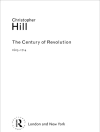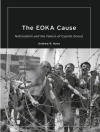This compelling account of a turbulent period in the history of the BBC opens at a time of national decline under the Labour governments of Harold Wilson and James Callaghan, and ends during Margaret Thatcher’s iconoclastic Conservative premiership. The intervening years saw mass unemployment, trade union strikes and war in Northern Ireland and the Falklands – as well as legendary BBC programmes such as Live Aid, Fawlty Towers and Dad’s Army, The Singing Detective and Tinker Tailor Soldier Spy, and David Attenborough’s Life on Earth.
Comprehensively revised and expanded for this new edition, Jean Seaton’s perceptive study presents an absorbing analysis of an institution that both reflects Britain and has helped to define it.
Sobre el autor
Jean Seaton is Professor of Media History at the University of Westminster and Director of the Orwell Prize for political writing and journalism. She has written widely on broadcasting history and politics of the media (especially the BBC), as well as on news, the ways in which wars and conflicts are covered, and children and the media. She has written about and helped form media policy. Her book with James Curran, Power Without Responsibility: the Press, Broadcasting and Internet in Britain (1981), has become an international classic and is in its 7th edition. Her most recent book is Carnage and the Media: How News about Violence is Made (2006). She is a regular broadcaster and an editor of The Political Quarterly. She has three sons and lives in London.












